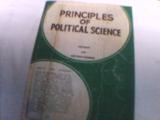
The Walt Disney Company is one of the most well known examples of a company succeeding in large measure by applying the principles of customer advocacy and "service recovery"—principles that have become an integral part of Disney’s operations.
Prior to starting his own company, Integrated Loyalty Systems, Jake Poore spent close to 20 years in customer service working on service recovery for the Walt Disney Company in Orlando and Paris entertaining 25-35 million people a year.
According to Jake, "everyone makes mistakes, that's human. But how do you solicit those mistakes and rectify them so that the story is now possibly better than if there were no mistake at all?"
He goes on to explain that "uneventful does not create loyalty, and does not drive return visits or intent to refer new business…. So, how do you find your mistakes?"
Perhaps the worst outcome of all is a situation where mistakes aren't noticed and customers who experience poor service simply walk away without complaining and with no intention to return.
Jake points out that almost 70% of unhappy customers who decide to leave your business don't write letters of complaint. Finding and/or soliciting complaints by being proactive is the key—according to Poore, it's an art.
Finding customers who have complaints (legitimate or exaggerated) provides the best opportunity to fix the problem, retain loyalty and maintain satisfaction. Positive stories about bad experiences are just as important, and occasionally far more important, than positive stories about good experiences—the latter are expected while the former are impressive, more memorable and more likely to get repeated.
"If your customer goes home mad," Jake explains, "it is not only too late, but they will tell many people THEIR STORY." But if you can catch them and correct the error, "now they’re possibly telling YOUR STORY!"
Jake Poore was so successful at customer service while at Disney he went on to start his own company and is now President and Founder of Integrated Loyalty Systems, a consulting firm specializing in service development, process improvement, leadership training and service excellence.
*Source of Jake Poore Quotes
www.mpdailyfix.com/2007/03/apology_101_1.htm
A man who claims a right which is not his, is a tyrant. A man who has a right but does not know it, can be easily taken advantage of. A man who knows he has a right but does not exercise it, is a fence sitter who lacks civic consciousness. A man does not have a right but grabs and make use of it, is a despot
Friday, November 28, 2008
Customer Service and the Walt Disney Company (Case Study)
Posted by
Lex Libertarian
at
11/28/2008 11:22:00 PM
222
comments
![]()
Wednesday, November 12, 2008
Leaderhip Tips

History in its brightest and darkest moments witnessed the rise and fall of different leaders. There was Odysseus, Joan of Arc, Napoleon Bonaparte and Adolf Hitler.
What common traits identified in those personalities mentioned? What leadership style they follow? I’m sure they have their own unique way of leadership.
For us to become a leader in our own rite we must guided and live with some basic rules.
WANNA BE A LEADER?…..FOLLOW THESE RULES…
A leader teaches through example not through words.
Arrives at work on time/first to arrive (punctuality is a virtue), exemplifies the work ethic, demonstrates the empathy and compassion that the staff must follow.
A leader praises their team and awards for accomplishment.
Always looks to catch people doing something right. Supervises and monitors the day to day activities.
A leader gives credit, yet never desires it
Guides the staff but allows them to make their own decisions that affect their work and then gives them the credit even though they perhaps could not have done it without the leader's help. In short, the leader sees growth as very important and let the subordinates grow on their own way.
A leader earns trust, never demands it
Earns trust by being honest and caring. Complete breakdown in trust will occur when a leader demonstrates an act of dishonesty or speaks disparagingly about another staff member in public. The staff soon believes that their leader may be dishonest in dealing with many things… or perhaps is speaking poorly to others about ME too.
A leader demonstrates good decision making skills
Makes decisions that are in the best interest of the WHOLE organization and thoroughly strives to understand all of the possible ramifications of their decisions
A leader has decipher their own character…they know their strengths and are able to admit and cope with their weaknesses.
Always secure enough to ask for help in areas of weakness
A leader responds well to criticism
Realizes that (constructive) criticism is part of the job…they not only accept it but they have the ability to look at it objectively to see if anything can be learned.
A leader is an expert communicator
Replaces demeaning phrases such as "that's not right" or "no, do it this way" with empowering statement such as "perhaps you may want to do it this way"…
A leader knows their organization. They recognize and respect that each person has their own individual characteristics, needs, strengths and weaknesses.
A leader never needs that symbolic "pat on the back" but realizes that everyone else does.
A leader is capable of putting aside all personal issues as they recognize the importance of peace and harmony on organizational productivity.
APPARENTLY, BEING A LEADER IS DEMANDING. IF IT WERE EASY….WE WOULD HAVE AN ORCHESTRA WITH ALL CONDUCTORS AND NO PLAYERS!
STILL WANT TO BE A LEADER?….IF SO, YOU MUST ABIDE AND LIVE BY THESE RULES!
Posted by
Lex Libertarian
at
11/12/2008 07:15:00 PM
4
comments
![]()
Labels: Leaders, Leadership Style

















